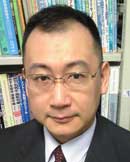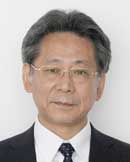CREST PhaseI
Haruyuki Atomi Team

- Haruyuki Atomi
- Professor, Kyoto University
Enhancing and fusing archaeal metabolism: a new approach towards bioenergy production
This project focuses on the Archaea, the third domain of life distinct from the Bacteria and Eucarya. We first aim to understand and enhance the various metabolic mechanisms of the Archaea involved in bioenergy production and biomass degradation. With the aim to develop microorganisms with novel bioenergy-producing capabilities, we will further explore the possibilities of fusing these functions via genome-scale DNA recombination.
Shigeru Okada Team

- Shigeru Okada
- Associate Professor, The University of Tokyo
Characterization of hydrocarbon biosynthesis and secretion mechanisms by the green microalga, Botryococcus braunii to control biofuel production
The green microalga Botryococcus braunii produces unusually large amounts of liquid hydrocarbons from carbon dioxide and photosynthesis, and secretes these hydrocarbons outside of cells. These hydrocarbons are promising as an alternative fuel source since they are chemically very similar to petroleum. The objective of this research project is to understand gwhy and howh those hydrocarbons are produced and secreted by this alga at not only the cellular but also the molecular level. The unique hydrocarbon production and secretion mechanisms in this alga will be genetically engineered using the basic information obtained through this project in order to establish more effective technology for biofuel production.
Shigeyuki Kawano Team

- Shigeyuki Kawano
- Professor, The University of Tokyo
Establishment of innovative technology to create new microalgal strains increasing biofuel production by polyploidization and heavy-ion beam irradiation
To make the biofuel production using microalgae practicable, it is necessary to breed their strains which can be mass-produced just like grains and horticultural crops. However, there was no conception of breeding in the microalgae so far, or their genomes have not been decoded in most of species. In the present study, the microalgae irradiated with the heavy-ion beams, which have the successful results by the selective breeding of horticultural crops, will be selected and bred based on the quantitative data concerning their forms. We aim for the establishment of the breeding scheme, which is innovative, advanced and specialized in microscopic algae, based on complete genome information.
Yoshihiro Shiraiwa Team

- Yoshihiro Shiraiwa
- Professor, University of Tsukuba
Research on the metabolic pathway of alkenones in marine haptophyte algae and the development of new algal oil production technology
The haptophyte algae, especially coccolithophorids, are thought to had played major role for the production of petrolium and limestones in geological era. The algae still produce huge blooms and biomass by fixing carbon dioxide photosynthetically even in the present ocean. The long-chain lipids, named alkenones, produced by the algae can be one of important candidates for algal biofuel production. This research focuses on the elucidation of metabolic pathway of biosynthesis of alkenones and the development of biotechnology for the mass production of biofuels using marine haptophycean microalgae and seawater.
Koji Sode Team

- Koji Sode
- Professor, Tokyo University of Agriculture & Technology
The Cyanofactory
Our research team is creating a novel cyanobacterial system, designated as "Cyanofactory", for the production of biofuel-related compounds. The Cyanofactory is composed of 1) a synthetic cyanobacterial host strains, 2) synthetic operons for the production of biofuel-related compounds, and 3) the employment of ion-liquids for downstream processing. The Cyanofactory realizes the sustainable production of biofuel-related compounds based on synthetic cyanobacterial processes with minimal energy and waste.

